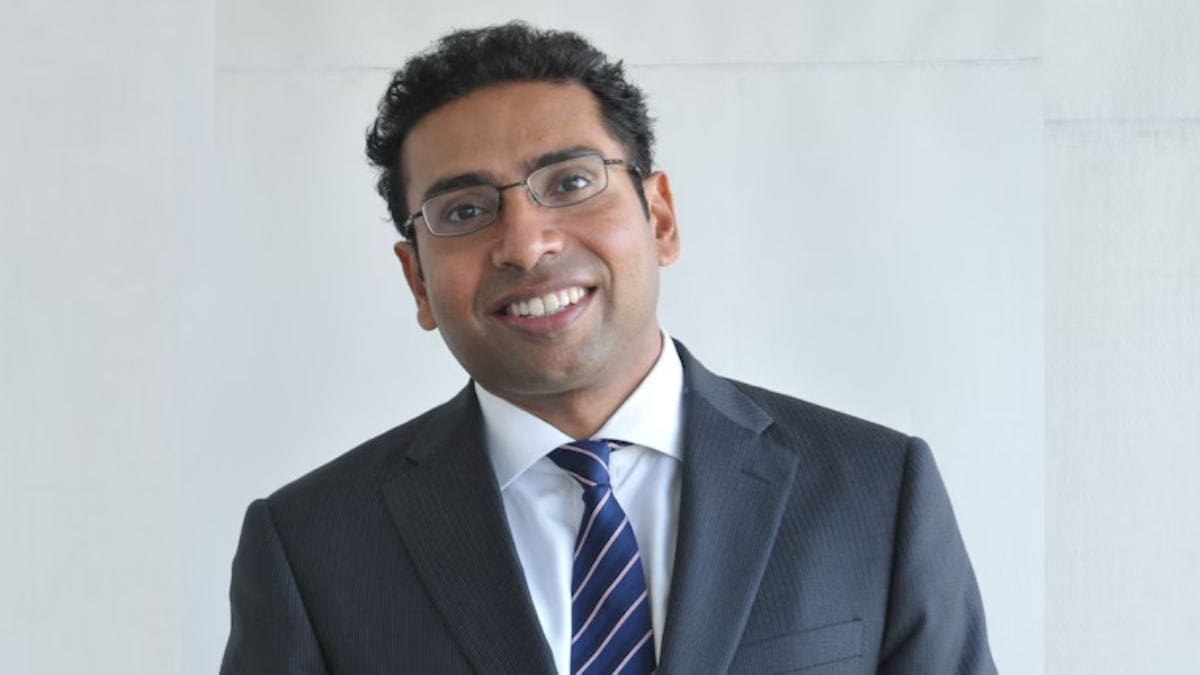JUST two weeks back homegrown chat application firm Hike Messenger introduced free voice calls to its Android user base across the globe. This feature will allow Hike’s 35 million-plus users to call each other for free, over 2G, 3G and Wi-Fi connections.
What is Hike doing? Is it planning to bite into the revenues of telecom operators, one of whom is Bharti Airtel? After all, Hike is run by Kavin Bharti Mittal, son of telecom czar Sunil Mittal, and is a joint venture between Bharti Enterprises and Japan’s Softbank Corp. And the Bharti group also runs India’s top mobile operator Bharti Airtel, which has been critical of over-the-top (OTT) players which offer free voice-over-internet calls and other such services over the networks of mobile operators.
The younger Mittal’s moves have been raising eyebrows for quite some time now. When everyone expected to jumpstart his career by working with his very famous dad, the Bharti scion opted for a different route. In 2011 he led Bharti Enterprises to enter into a joint venture with Softbank Corp to offer mobile internet services under Bharti Softbank Holdings Pte Ltd (BSB). He then made the inevitable move and entered the OTT messaging business with the launch of Hike in 2012. Since then Mittal’s application has managed to cross the 35 million-user-mark apart from handling over 10 billion messages and three billion stickers per month.
The latest move has to be seen in that context. Announcing the free call service, the Hike founder and CEO had said, “Our target is to have 100 million users by early to middle of next year, we believe voice calling as a feature will help us get to that milestone faster.”
The introduction of voice calls comes within a month of Hike making its first acquisition – a free calling app maker called Zip Phone. What’s more significant is that it comes within weeks of Bharti Airtel announcing its plan to charge different data rates for voice over internet protocol (VoIP) services. But that was seen as violating the concept of net-neutrality and the company ditched the plan amid reports that the Telecom Regulatory Authority of India (Trai) may issue a consultation paper on OTT companies.
So what exactly is Hike’s game plan? “We believe that even if voice minutes are cannibalised, if that happens, you are getting people to buy data packs, so you are opening up a brand new very fat revenue stream and to me that’s a win win in long term,” says Mittal in his defence.
Hidden in the Mittal scion’s comments is a definite connect between what Hike is doing and what Bharti Airtel is all about. The world of plain-vanilla telecom services is disappearing fast.
The telecom industry is moving towards selling data plans. Much of their revenue in the future will come from there. Worldwide, many telecom service providers are focusing their efforts on their role as internet service providers rather than telecom companies. So if Bharti Airtel is about a business model that has proved its worth in the past, Hike is about a business model which is made for the future.
Mittal himself says it in so many words. “We believe that for services like Hike and YouTube and so forth, people actually buy data plans. If we did not exist, people would not buy data. So, on one hand we are driving a new source of revenue for telcos,” he said. At Bharti Airtel itself, third-quarter net profit more than doubled, riding on higher usage of pricier data services. Consolidated profit rose to R1,436 crore for the period from R610.2 crore a year ago. It witnessed a 74% increase in mobile data revenue in India.
Jason Mander, head of trends at GlobalWebIndex, an internet market research firm, goes a step further when he says that telecom companies should stop looking at mobile messaging app companies as a threat and instead partner them. “Mobile messaging apps could be an additional revenue stream for telecom operators and could help operators to compensate for their revenue loss. As for Hike, it is highly likely that in the future it could be merged with Airtel’s business.”
Even as Hike has managed to create its own niche, it won’t be a cakewalk for Mittal and his team as he operates in a very small and extremely crowded market. Within five days of Hike announcing its free calls service, came the news that global messaging giant WhatsApp had rolled out its new free voice-calling feature to a few users in India on an invite-only basis.
Besides, there is WeChat owned by Chinese internet company Tencent Holdings Limited and Viber which is now owned by Japan’s Rakuten Inc, besides Japan-based Line Corp. Globally, in voice calling through applications, Skype is the market leader. Viber and Line both offer voice calls in India.
Last year, UK-based New Call Telecom had bought a 70% stake in instant messaging and voice-over-internet call service provider, Nimbuzz, for about $175 million.
“This is a 10-year game where not everyone is going to make it. Also, one should not forget the fact that any lucrative and competitive space is always over-crowded. OTT messaging market has picked up in the last one year. This is just the beginning. A lot more is yet to come,” said Mittal.
For Ankur Bisen, senior vice president, retail and consumer products division at management consulting firm Technopak, OTT messaging apps constitute part of a jigsaw puzzle. “No one at this point in time is looking at OTT messaging service as a separate business unit. What OTT messaging apps bring to the table is that they provide access to a captive audience. Facebook acquired WhatsApp for the simple reason that it would get access to 700 million captive users of the messaging app has. Similarly, WeChat fits the bill for Tencent Holdings as the latter is in the business of internet value-added services, online games, etc,” said Bisen.
Even as OTT apps boast of a very strong user base, it should be noted that when it comes to revenue not a single player has been able to hit the jackpot. While players such as Viber, Line and WeChat earn their revenue through micro-payments, the biggest fish in the water, WhatsApp, gets it money from subscription. The app is free to download first time but users pay a $1 annual subscription after that. Back at home, Mittal too is yet to monetise his product.
Mittal says that the current focus is to build a great product that millions of people will use. “In order to be able to monetise the platform we need to achieve a certain scale. OTT messaging is a volume driven business. We’ve gone from zero to over 35 million users in under two years. Our fast paced growth and adoption is a testament to the fact that the youth in India is maturing as a mobile-first product-market and wants more than what’s trickling down from the West,” he added.
Industry observers however say that OTT messaging firms are fully aware that the product will never be the cash cow. “At some point the debate about whether messaging apps such as WhatsApp or Viber will ever make money would end. One has to realise that these apps will act as an enabler in the future allowing the parent company to earn its revenue through integration of various features. Going forward, it will be about how WhatsApp is enabling Facebook to earn its revenue. Likewise, Hike is expected to enable Bharti Airtel to make more money in the long run,” added Bisen.
After raising $65 million (R400 crore) from overseas investors, with New York-based Tiger Global being the major contributor apart from BSB in August last year, Mittal was quoted by newspapers saying, “We now have the ammo to tackle the more audacious items on our list.” Mittal’s audacious items include the plan to localise Hike, apart from introducing a host of features designed keeping in mind the needs of Indian consumers.
And the process of localising the messenger has already started. In November last year, Hike introduced over 250 creative stickers to cater to consumers in almost 11 regions. The regional packs were launched for users in Maharashtra, Gujarat, Madhya Pradesh, Bihar, West Bengal, Assam, Andhra Pradesh, Karnataka, Tamil Nadu, Kerala, Punjab and Delhi. “In India, preferences are different in each city. For instance, a customer belonging to top-end of the pyramid and living in Mumbai will have different needs when compared to a consumer who too belongs to top-end of the pyramid but lives in the state of Uttar Pradesh,” explained Mittal.
Localisation is just one side of the coin. Mittal claims that Hike has been designed keeping the needs of consumers in mind. “Over 80% of our user base is under the age of 25,” he says. Features such as ‘Hidden Mode’ which lets a user hide private chats and access them only with the right passcode, ‘Attachment’ which allows a user to send files as heavy as 100 MB, etc., are behind Hike’s popularity.
Asked if some of the features were introduced taking a leaf from Mittal’s own experience as a teenager, the 27-year-old tech maverick chuckles.
“The youth wants to break free from the constant glare of their parents. A feeling every one of us has gone through and these features aid them in doing so,” adding “Hike is much more than being an app for the youth.” A feature such as ‘Hike Offline’ allows its users to send messages to even those friends who don’t have a smartphone or an active Internet connection. This feature is very powerful in a market like India, where people turn off their data to save costs or battery or are just in a bad network area.
Given the competition, creating stickiness is a big challenge that Mittal has on his plate. “We have ‘Hike Ninjas’ – these are the more than 1000 users who give feedback on the kind of features they want or if there is a need to better any service,” said Mittal.
Interestingly, the competition too is unfazed. “We are interested in sustained and managed growth that will give us a long term business. We are not interested in chasing a first pole position. I wish the local competitors good luck. I think we are all operating in a very interesting space and no doubt they’ll learn from us and so would we,” said Mark Hardy, CMO, Viber Global, earlier in an interview to BrandWagon.
Mittal is aware of the need to evolve his app from being simply a chatting tool. “We’re eventually going to integrate many services in the app, without disrupting the messaging experience and if any additional service adds value to users, even outside of the BSB group, it’s something to consider,” he said. For instance, BSB has developed music streaming application Wynk Music which has been made available to Bharti Airtel subscribers. Additionally, BSB was in the news last year for acquiring 36.5% stake in ScoopWhoop Media for R10 crore. While Mittal agrees that is a demand for good and original content online, according to him there is no plan to integrate ScoopWhoop with Hike as of now.
According to industry experts there is only one way to winning this game, and that is, by being different. Mittal so far has managed to do pretty well in that department. “While WhatsApp and WeChat will always have the first mover advantage when it comes to volume of users it does not mean the end of the road for homegrown apps such as Hike. While India is a big market, there are only two ways of getting more users hooked onto an app. One can either focus on innovation by launching new features which will help in staying ahead of the competition or can concentrate on privacy. As consumers become more and more concern about data privacy, a messaging app can introduce features in this space,” said Neha Gupta, senior research analyst, Gartner, a technology research and advisory firm.
CEO profile:
Kavin Bharti Mittal
AGE: 27
Founder & CEO, Hike Messenger
Education
Masters in Electronics and Electrical Engineering with Management, Imperial College London (2009)
Big Moments
l Founded a start-up named AppSpark when he was 20 to explore the possibilities in the mobile applications space.
l In 2009, AppSpark built Movies Now for iOS which was hailed as one of the best designed movie apps on the platform.
l In December 2010, AppSpark built Foodster, a whole new take on food recommendations. Foodster was launched in beta in June 2011.
l Founded Hike in 2012.
First Love
F1 racing. In 2006, Kavin interned at McLaren Racing in their F1 Division. There he was responsible for developing a new lighting system for the steering wheel that was used to indicate track flag colours to the driver in a more efficient manner.Mittal used to fly planes a couple of years back (a Piper-Archer DX). He also enjoys playing the drums though he hasn’t had much time for that in recent days as he takes Hike to the next level.
Kavin Speak
“There is something very interesting about racing and flying. You need discipline. If you don’t follow the right racing line on the track or follow the right path when flying, you could really screw things up. It helps keep the ego in check.”








